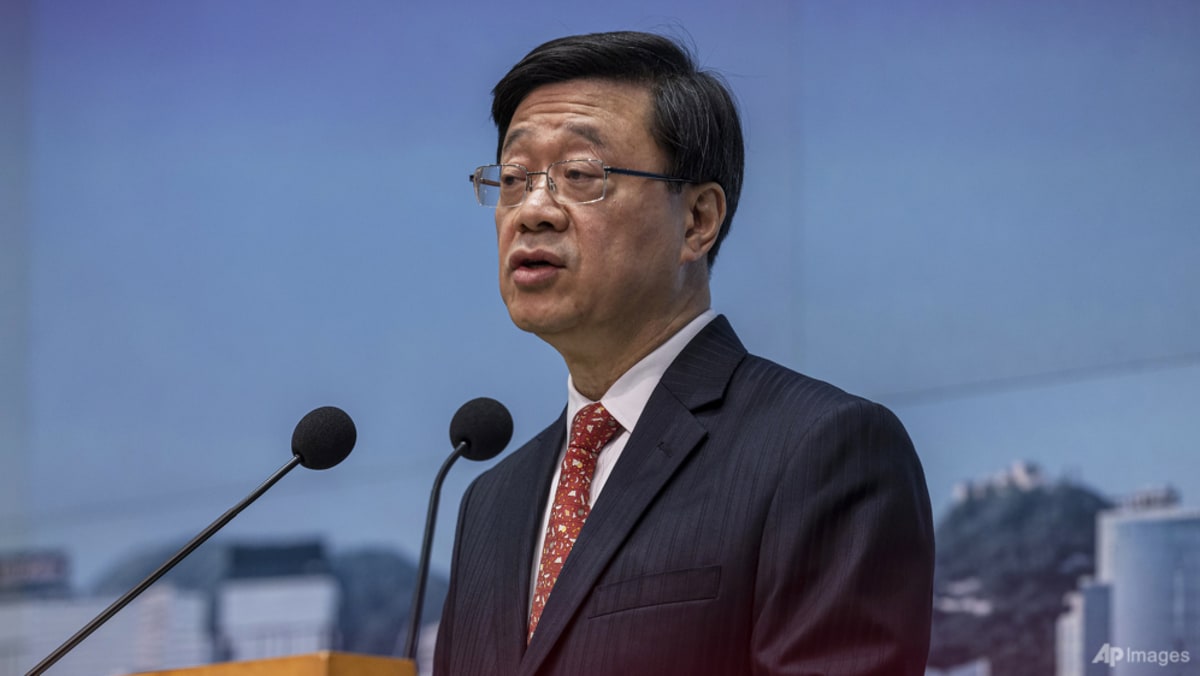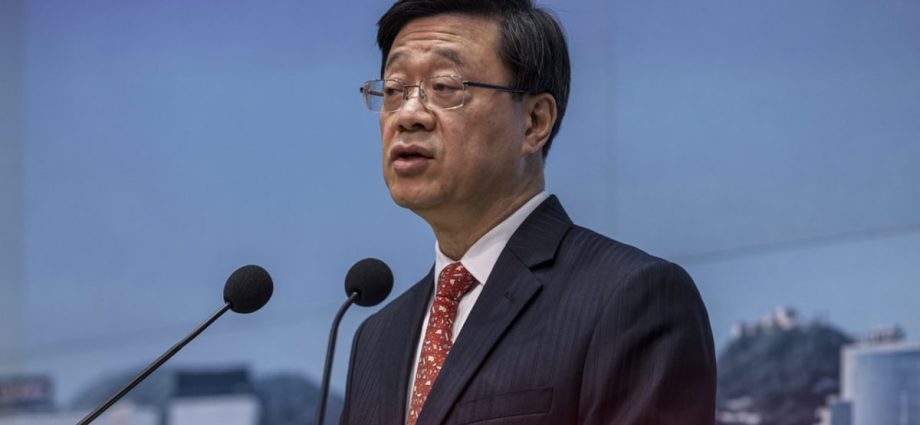
The sentencing comes as US President Joe Biden is travelling to Hiroshima, Japan this weekend for the summit of the Group of Seven major industrial nations, followed by a visit to Papua New Guinea, a Pacific island nation in a region where China has sought to expand its economic, military and diplomatic influence.
While the Suzhou court offered no indication of a link between Leung’s case and overall China-US relations, spying charges in China often appear highly selective and evidence backing them up is held in secret. The party’s rigid control over courts, civil society and the media effectively blocks efforts to gain further information or mount legal appeals.
The US Embassy in Beijing said Monday it was aware of Leung’s case, but could not comment further due to privacy concerns.
“The Department of State has no greater priority than the safety and security of US citizens overseas,” the embassy said.
A former British colony, Hong Kong was promised it would retain its financial, social and political liberties when returned to China in 1997. Beijing has since torn up that commitment through progressively harsher restrictions on public gatherings, free speech and political participation, while still promoting the city as an efficient and corruption-free centre for trade and finance.
Meanwhile, on the mainland, Chinese national security agencies have raided the offices of foreign business consulting firms in Beijing and other cities as part of a crackdown on foreign businesses that provide sensitive economic data.
The pressure on foreign companies appears to clash with attempts by Beijing to lure back foreign investors after draconian COVID-19 pandemic restrictions were lifted at the beginning of the year.
It was not clear who represented Leung at his trial and his family has not commented on the sentence. Friends and former colleagues declined The Associated Press’ requests for comment.
Long pretrial detentions are not unusual in China and prosecutors have broad powers to hold people charged in national security cases, regardless of their citizenship status.
Two Chinese-Australians, Cheng Lei, who formerly worked for China’s state broadcaster, and writer Yang Jun, have been held since 2020 and 2019 respectively, without word on their sentencing.
Government suspicion is particularly focused on Chinese-born foreign citizens and people from Taiwan and Hong Kong, especially if they have political contacts or work in academia or publishing.
Under Xi, the party has launched multiple campaigns against what it calls foreign efforts to sabotage its rule, without showing evidence.
Online commentary and independent information sources have been muzzled and universities ordered to censor discussions of human rights, modern Chinese history and ideas that could prompt questions about total Communist Party control.
Xi’s government has also taken a hard line on foreign relations, most recently ordering a Canadian diplomat to leave at short notice in retaliation for Ottawa’s expulsion of a staffer at the Chinese Embassy who was accused of threatening a member of the Canadian Parliament and his family members living in Hong Kong.
China’s leader for a decade who faces no term limits, Xi has taken a highly confrontational stance toward the US and other democracies, while backing Russian President Vladimir Putin in his invasion of Ukraine and supporting other autocratic governments from Nicaragua to Myanmar.

